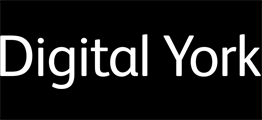
An annual study by the University of Roehampton has found that fewer 16-year-olds in England are getting a computing qualification.
It also said schools have cut back on the hours spent teaching the subject.
In 2018, 130,000 students got a GCSE in either computer science or ICT (information and communications technology), down from 140,000 the previous year.
This year, the ICT exam is not an option.
The fall in exam passes follows the phasing out of the ICT GCSE from the national curriculum in England and its replacement by the more challenging computer science.
However, with entries for computer science growing only slowly it looks certain that far fewer 16-year-olds will emerge with any computing qualification.
The study says the provision of computing education is "in steep decline", with the number of hours of computing taught in English secondary school classrooms falling by 31% between 2012 and 2017.
The report's authors say that for the majority of school students who do not opt to take the computer science GCSE it now looks unlikely that they will be getting any computing education in schools beyond the age of 14.
"It looks likely that hundreds of thousands of students, particularly girls and poorer students, will be disenfranchised from a digital education over the next few years," said Peter Kemp, senior lecturer in computing education at the University of Roehampton.
Sixty-one per cent of schools offered the computer science GCSE as an option in 2018, a modest rise on the previous year.
But a number of schools where it had previously been an option dropped it last year, among them a number of girls-only comprehensives and grammar schools.
Another of the report's authors, Miles Berry, says the new GCSE has got a reputation for being harder than other subjects, and that has proved off-putting to less academic students.
"Even among the academically strong, privileged intake, performance is typically below that of students' other subjects, and thus students, their parents and their head teachers might understandably take the view that this is not an easy way to get top grades," he said.
The old ICT course got a bad reputation for giving children few skills apart from how to set up a spreadsheet or make a Microsoft PowerPoint presentation.
Universities complained that students were applying to study computing having not even learned basic programming at school.
The spread of code clubs, the birth of the Raspberry Pi project and the new computer science exam were all sparked by anxiety about the level of computing education in schools.
The Department for Education said the government had acknowledged the importance of computing by making it a compulsory part of the national curriculum.
"We are investing £84m over the next four years to up-skill up to 8,000 computer science teachers and drive up participation in computer science," said a spokesperson.
*Credited to BBC News - https://www.bbc.co.uk/news/technology-48188877
Lindsay Wilkinson - Digital City Executive
Contact Number - 07879 415784
Contact Email - [email protected]
Ben Atkin - Digital City Officer
Contact Number - 01904 552999
Contact Email - [email protected]
UFO Careline Team
Contact Number - 0800 2300 272
* Required Field
Privacy Policy: We will never share your information with anyone. We will only contact you with regards to your enquiry.
Email: [email protected]
Phone: 01904 552999